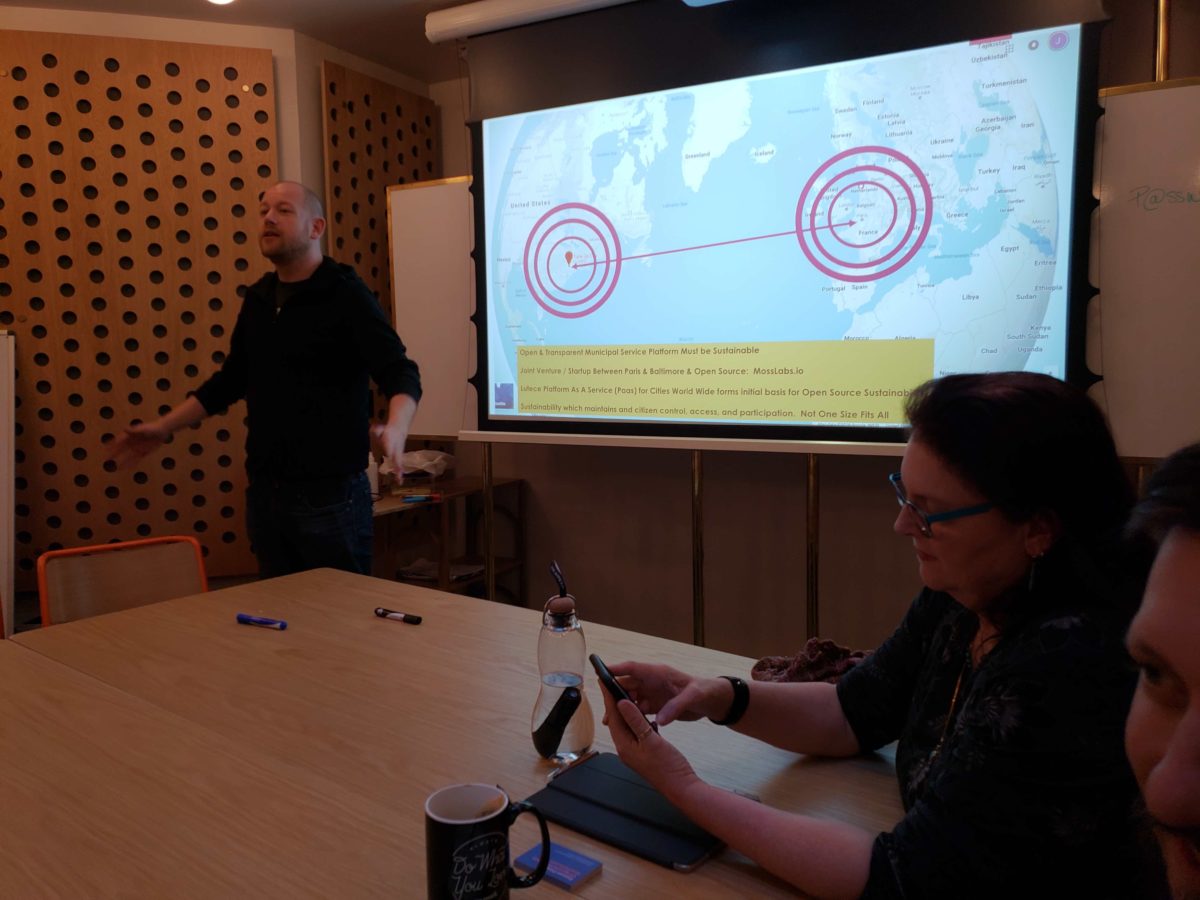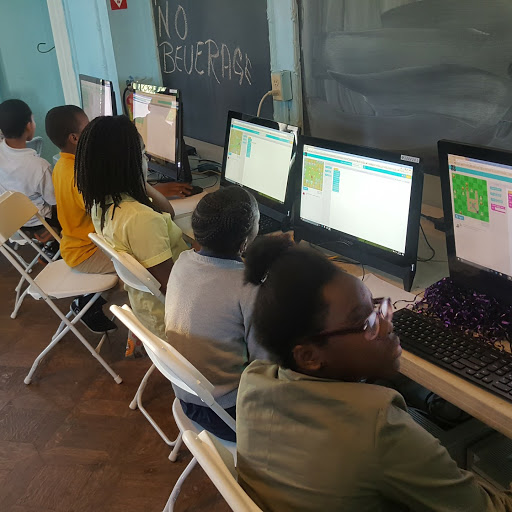A tech tool built for cities is going neighborhood level in Baltimore.
Lutèce, developed by the City of Paris, is an open source platform designed to house city services and offers a base platform on which to develop web and mobile applications. For Paris, it’s the digital home for the 200 various functions city government performs.
“Lutèce runs the city of Paris, in terms of city services,” said Jacob Green, a Reservoir Hill resident who founded open source organizing effort MossLabs.io and has been working on bringing together cities and open source communities.
Through a new collaboration, the platform will go live in West Baltimore: The St. Francis Neighborhood Center will start using Lutèce for the programs and services it provides for residents in Reservoir Hill and Penn North. The team behind the effort said it’s the first time the platform has been used outside of France, where it’s also in Lyon and Marseille.
The experimental move is designed to start at the neighborhood level to identify needs.
“Baltimore is a city of neighborhoods, so it was the idea of, ‘Let’s get it to work in a neighborhood first before we can think about how it would be used in a city like Baltimore,'” Green said.
Using Lutèce can help St. Francis expand access to technology, as well as educational opportunities.
It arrives as the St. Francis Neighborhood Center is expanding. Executive Director Christi Green (no relation to Jacob) said the center is in the midst of a $4 million renovation of the 125-year-old brownstone that will triple its size. The center works with about 500 youth and adults a month, offering education, mentoring and more to end poverty in an area where 40% of families are below the poverty level.
Along with having more space to accommodate residents that are currently on a waiting list, she said one focus has also been on expanding tech opportunities — making it a “smart center.” Using Lutèce, she said, can expand access to technology, as well as educational opportunities.
“This program is going to take us to the next level right away,” Christi Green said. “We’re incredibly thrilled that we have this worldwide opportunity to change our corner of Baltimore.”
Jacob Green said interest around Lutèce has been growing in the open source community as 500 modules have been developed for different functions, and MossLabs is working with Paris as the IT team is now interested in building a community around the platform to keep finding new uses and grow what it can do.
That’s often how open source platforms grow.
“Rather than starting from scratch, let’s use a platform that’s designed for this,” he said. “We already know Lutèce can power a whole city the size of Paris. Any success you have can also scale.”

Jacob Green talks about the Paris-Baltimore open source connection. (Courtesy photo)
In bringing it to Baltimore, the idea is also to convene residents and institutions around the effort, as well as technologists and community orgs that will use the apps that are developed, like SFNC.
MICA, the Baltimore arts college that has a campus is nearby, is a partner for strategizing on the effort and launch of the platform, Christi Green said. And students at Johns Hopkins worked on various projects during a computer science class. (It was also among the platforms offered at HopHacks‘ fall edition). The Hopkins students helped to develop self-service scheduling tools for the center’s services.
In December, the group that’s involved from Baltimore went to Paris for an unconference on the effort.
Given that open source enables functionalities to be scaled and freely distributed once they are developed, what's developed in the community can then spread.
When used at St. Francis, Christi Green said tools can help provide functions for the staff as they schedule and run programs, as well as provide a digital place for members to connect and an area for the community members who use the space to see space that’s available. It’ll be important as they grow.
“We feel like this program is going to help us navigate triple the size and be more effective than we are right now,” she said.
The idea is to develop functions that communities can use at the neighborhood level, and in turn are in response to what a center serving the community and residents themselves want. Given that open source enables functionalities to be scaled and freely distributed once they are developed, what’s developed in the community can then spread, Jacob Green said.
Christi Green also sees opportunity to provide education by teaching programming through Lutèce. The center is already working with Code in the Schools, and seeks to offer other tech education opportunities with drone outfit Global Air Media and Lance Lucas‘ tech training program Digit All City.
“Even though we’re small, it’s going to have a big impact,” she said.
The program comes as we’ve been seeing an uptick in conversation around smart city efforts to bring new technologies that will improve civic life. In developing at the neighborhood level and in a community center, the idea is to create technology that residents want.
So along with meetings in Paris, Jacob Green and MICA have also been leading roundtables with residents in West Baltimore.
“Baltimore residents know the city and community services they need,” said Sheri Parks, VP of MICA strategic initiatives, who is the lead institutional partner. “It is vital to partner with residents to create, maintain and drive the construction of services.”
Join our growing Slack community
Join 5,000 tech professionals and entrepreneurs in our community Slack today!
Donate to the Journalism Fund
Your support powers our independent journalism. Unlike most business-media outlets, we don’t have a paywall. Instead, we count on your personal and organizational contributions.





